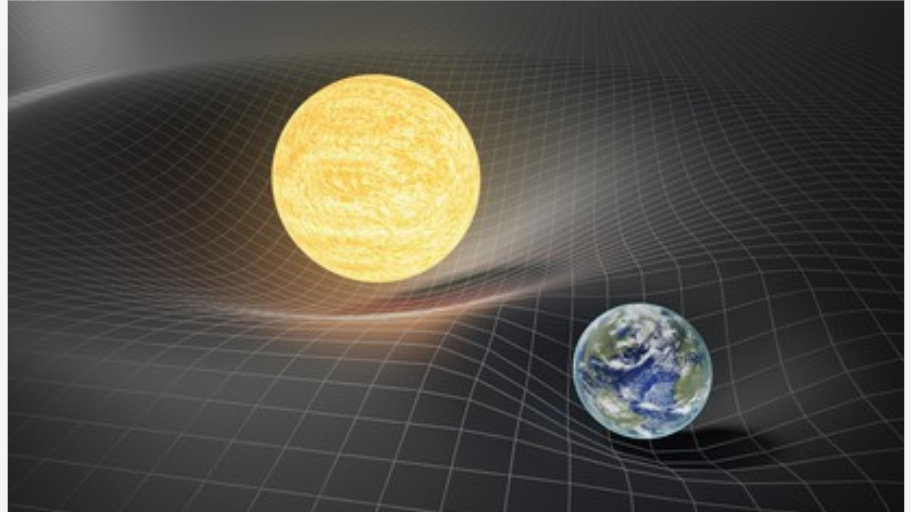|
In my introductory college course on cosmology, the professor was an actual astrophysicist. When we began covering the universal constants, I couldn’t shake this idea that light couldn’t be a constant. The physics definition of acceleration is the rate of change of velocity per unit of time. And shortly before I took this class there were research teams running packets of photons through filters which resulted in “slowing down light.” Some had evidence they could speed it up, though their findings were in question. Directional change too can be considered a form of acceleration. Without debate light does these. Why not increases or oscillations in rate of light speed?
The professor scoffed at my naivety. I leveraged the fact that before Plank time there must’ve been very different physics, and that there are massive bodies like black holes so great that light doesn’t escape them. Doesn’t this solidify the notion that light speed HAS to change? He rebutted, “no; because the resting mass of a photon is zero.” Every observable finding I brought up which bolstered the concept that at some point somewhere in our universe light must change speed, he always responded the same way: the resting mass of a photon is zero. When I pressed the expert on his response, his underlying reason was vexing. I said, “how do we without question know this to be true, especially when the great hope is to find a subatomic particle that can explain the mass problem which plagues most models?” His answer, “without a photon’s resting mass as zero, the math for special relativity won’t work.” Why isn’t special relativity up for revision? It has had observable confirmation. Why can’t one of the underlying ideas in special relativity be wrong while as a model it gets things right? Crickets. Thus it is in weight loss. We relinquish the fundamental empiricism of science in order to “stick to our guns” on a once-sensible theory. That is, when people are confronted with the bald reality that they are doing things the wrong way, instead of viewing this through the lens of cold empiricism, the general response is “I don’t get it; this SHOULD work.” "It shouldn't be that bad for me." "I should be skinny." "I should be losing weight with how much running I do/how little I eat/how hard I work." Empiricism has NO PLACE for "should." Oh, and by the way, likewise in physics we’ve still got not unifying theory. So, something somewhere is amiss. It’s simple really: consider being wrong. Consider revising your approach. Breakthrough can come from break down. That is the most fundamental constituent of science. And refusal to consider any other possibility isn’t just non-science, it’s nonsense. I haven’t written off any nutritional tactic, because at once I can both question its authority AND see its practical application for different people. If you are unwilling to consider even the experiment to “try something else,” then you are always left with the same problems, the same disjointed beliefs, the same non-unified physics. Calorie counting is like this. It CAN work, but generally doesn’t because of underlying things it gets wrong. That doesn’t mean that a calorie isn’t a calorie isn’t a calorie and so on. It means that the contribution to body composition change in APPLIED science has more going on than the description of calories. People unwilling to address stress generally don’t make progress on the calorie model. People unwilling to experiment with other eating styles, clinging to the truth of “the calorie model”, tend to make no progress. This doesn’t invalidate the theoretical usefulness of a calorie in human biology. It just means the empirical feedback is telling us there’s MORE to the story. Weight loss, just like any scientific discovery, hinges upon our willingness to consider something wrong and something new. Rejecting the proposition leaves us every single time with the same old. That’s fundamental.
0 Comments
Your comment will be posted after it is approved.
Leave a Reply. |
Elev8 Wellness
|
LIVE. AWESOME.We offer the highest quality in personal fitness, nutrition, and mindset coaching, helping you achieve your fitness, health, wellness and performance goals no matter the obstacle. With virtual online training and private, in-studio training we make it easier to reach your wellness goals safely.
No more can't. No more not good enough. If you compete in a sport, let your mind no longer hold you back from being the greatest. If you don't, let your mind no longer hold you back from being the best version of you that you can be. Sign-up for a Tour Covid Screen Waiver Elev8 Waiver Become an Elev8 Instructor Space Rental |
6244 lyndale ave. s., minneapolis, mn 55423
|
© 2021 Elev8 Wellness LLC. All Rights Reserved. site map | contribute | SITE BY Sproute Creative


 RSS Feed
RSS Feed
